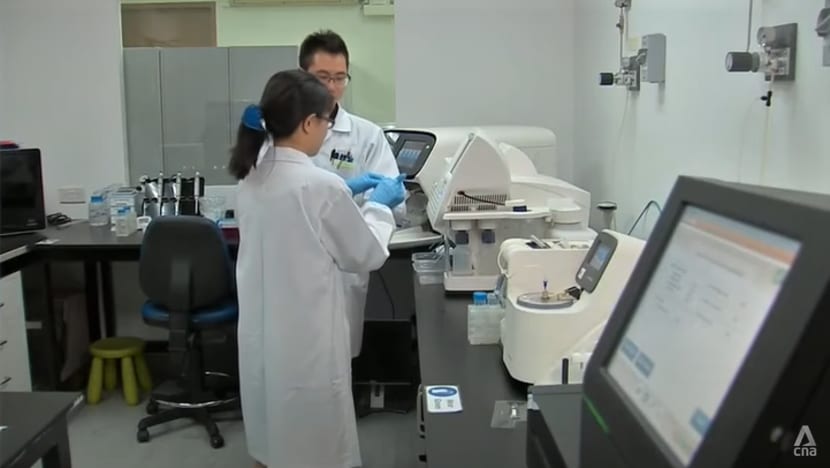Will talent shortage hold back Singapore’s biotech hub ambition?
The key roles facing the shortage include research and development, production, regulatory affairs and business management, according to a report released by SGInnovate.

The shortage of biotech talent in Singapore is set to grow by nearly 30 per cent over the next 10 years, according to a report by SGInnovate.
SINGAPORE: Singapore has to bridge a growing talent gap to achieve its biotech hub ambition, said SGInnovate executive director for talent Juliana Lim on Monday (Dec 19).
This comes as the shortage of biotech talent in Singapore is set to grow by nearly 30 per cent over the next 10 years, which could hamper the sector’s growth.
The key roles facing the shortage include research and development, production, regulatory affairs and business management, according to a new report released by SGInnovate - a private organisation owned by the Government.
SINGAPORE’S GROWING BIOTECH SCENE
But to write off Singapore’s biotech hub dream as dead in the water “is a bit excessive”, Ms Lim told CNA’s Asia Tonight on Monday.
“Certainly, I think at this stage where the Singapore ecosystem is at, we are in a comfortable position whereby we do have time to grow the talent for the sector for these companies,” she added.
“These need to be the right talent, with the right capabilities and the exposure that, given what we have in mind, will set us in good stead.”
The number of biotech companies in Singapore is estimated to jump from 52 to 84 over the next decade, according to the report.
The talent shortage will largely affect biotech companies in the clinical stage, across junior, manager and C-suite roles.
Singapore has a pool of talent highly sought overseas, including from various universities, said Ms Lim.
“And our job then, as the ecosystem - in terms of government, in terms of the companies - would be to come up with interesting ways in which we can continue to hold our talent within Singapore, attract new talent into Singapore, and grow the talent pipeline for the emerging startups that are coming into the ecosystem,” she added.
“At the end of the day, I think everybody needs to play a part, be it good government policies to startups and companies willing to basically put a stake into the game to … train and develop people. It's not just about importing talent from outside of Singapore.”
ATTRACTING BIOTECH TALENT
One challenge is that different biotech companies require employees with varied expertise, including workers who can lead teams, bring in investments or develop the business. For some startups, they may require staff with strong research backgrounds to grow their products.
As the biotech ecosystem - and the companies that make up the scene - grow and change over time, it needs to attract different types of talent, said Ms Lim.
On incentivising biotech firms to hire locals instead of bringing in foreign talent who may seem better, she said: “I think to say that foreign talent is superior is somewhat short-sighted. At the end of the day, it's about finding the right people for the right roles.”
She cited various initiatives to address the talent crunch and help companies fill their job vacancies, including subsidies for training individuals and schemes where foreign talent is brought in to develop the local talent pool.
“It needs to be a multi-faceted approach to solving this rather challenging issue,” Ms Lim added.
“This issue is not something that is unique to Singapore, it's something that everyone faces worldwide. And it needs a holistic solution, rather than just bringing foreign talent or just looking at local talent.”
















